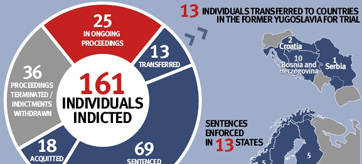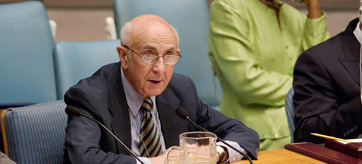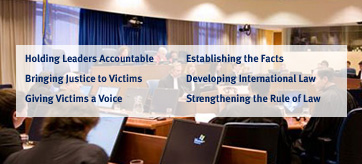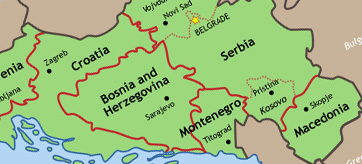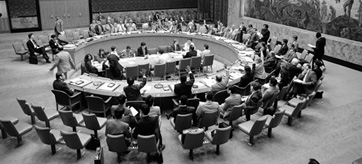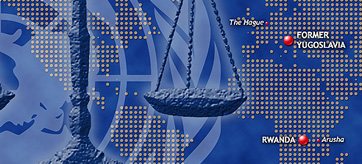
In its 20 years of existence, the ICTY has irreversibly changed the landscape of international humanitarian law and provided victims an opportunity to voice the horrors they witnessed and experienced.
In its precedent-setting decisions on genocide, war crimes and crimes against humanity, the Tribunal has shown that an individual’s senior position can no longer protect them from prosecution.

25 May 1993
UN Security Council establishes the ICTY
As conflict rages across the former Yugoslavia, the Security Council, spurred to action by reports of atrocities and pressure from international public opinion, unanimously adopts Resolution 827, formally establishing the International Criminal Tribunal for the former Yugoslavia.
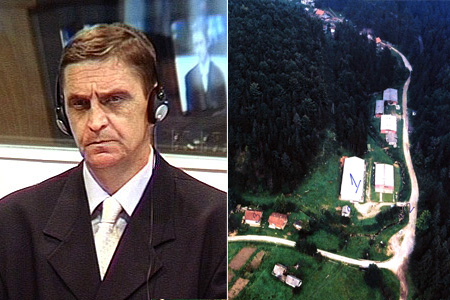
7 November 1994
First indictment issued
The Tribunal issues its first indictment, against Dragan Nikolić, a commander of Sušica camp in eastern Bosnia and Herzegovina, for crimes committed against non-Serbs in 1992.

16 November 1995
Srebrenica genocide indictment
Bosnian Serb political and military leaders Radovan Karadžić and Ratko Mladić are indicted for genocide committed against Bosnian Muslims in the Srebrenica enclave in July 1995.

7 May 1996
First trial commences
The first trial begins. Duško Tadić is accused of crimes committed during 1992 in the Omarska camp in northern Bosnia and Herzegovina, where thousands of Bosnian Muslim and Croat civilians were confined.
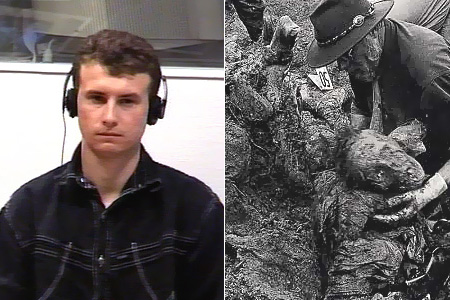
29 November 1996
First judgement
The Tribunal renders its first judgement. Dražen Erdemović, a soldier in the Bosnian Serb Army, pleaded guilty to participating in mass executions after the Srebrenica enclave was overrun in July 1995.
Dražen Erdemović was the first person to enter a guilty plea at the Tribunal.
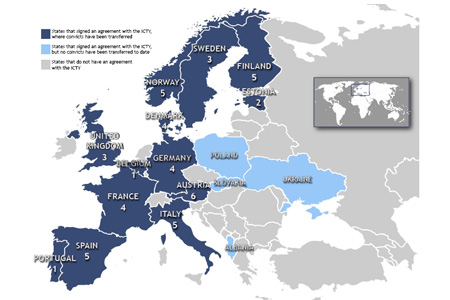
6 February 1997
Enforcement of sentences agreement
Italy becomes the first country to sign an agreement with the UN on the enforcement of sentences imposed by the Tribunal. As of early 2013, 17 countries had signed similar agreements with the ICTY.
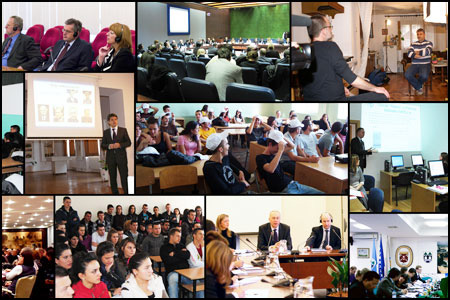
15 October 1998
Outreach Programme set up
The Tribunal’s Outreach Programme commences its pioneering communications initiative dedicated to making the work of the Tribunal more accessible and intelligible to the communities of the former Yugoslavia.
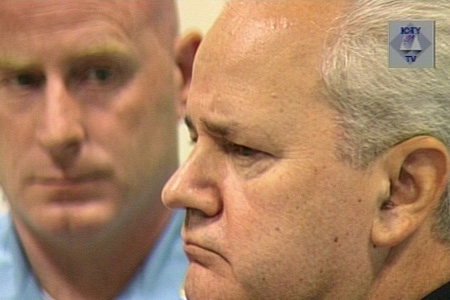
24 May 1999
First indictment for a sitting head of state
The Tribunal indicts Yugoslav President Slobodan Milošević. This was the first indictment against a sitting head of state by an international court. The charges against him were eventually expanded to cover crimes committed in Croatia, Bosnia and Herzegovina, and Kosovo from 1991 to 1999.
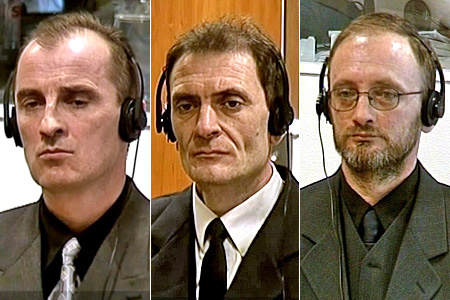
20 March 2000
Sexual enslavement becomes a “crime against humanity”
The first major trial dealing exclusively with charges of sexual violence against women commences. The indictment includes the groundbreaking charge of ‘Sexual enslavement as a crime against humanity’. Radomir Kovač, Dragojub Kunarac and Zoran Vuković, all members of the Bosnian Serb military and paramilitary forces, are charged with crimes committed against Bosnian Muslim women in Foča in 1992 and 1993.

27 January 2003
First indictment of KLA members
The first indictment against former commanders of the Kosovo Liberation Army is issued. Fatmir Limaj, Isak Musliu and Haradin Bala (photo) are charged with crimes committed in 1998 at the Lapušnik/Llapushnik prison camp in the Kosovo municipality of Glogovac/Gllogoc.

5 December 2003
First judgement relating to the siege of Sarajevo
Stanislav Galić, a commander of the Bosnian Serb Army, is found guilty of conducting a campaign of sniping and shelling attacks on the city of Sarajevo between 1992 and 1994.

19 April 2004
Aiding and abetting genocide
First conviction for genocide upheld on appeal. The Appeals Chamber determines that Radislav Krstić, formerly the commander of the Drina Corps of the Bosnian Serb Army, aided and abetted genocide in Srebrenica.

9 March 2005
Transfer of cases
Establishment of the War Crimes Chamber within the Court of Bosnia and Herzegovina, to which the Tribunal transferred a number of cases for adjudication in subsequent years.

15 March 2005
First FYROM indictments
The first indictment relating to the 2001 conflict in the former Yugoslav Republic of Macedonia (FYROM) is issued against Ljube Boškoski, former FYROM Interior Minister, and Johan Tarčulovski, a police officer in the President's security unit in the Ministry of Interior.

30 July 2008
Karadžić in Tribunal custody
Radovan Karadžić is transferred into the custody of the Tribunal, after evading arrest for 13 years. The former president of the Bosnian Serb entity known as Republika Srpska and supreme commander of the Bosnian Serb Army is charged with genocide and a multitude of other crimes committed against non-Serbs in Bosnia and Herzegovina during the 1992-1995 war.

22 December 2010
Establishment of the MICT
The United Nations Security Council establishes the Mechanism for International Criminal Tribunals (MICT), which will continue the work of the ICTY and its sister institution the International Criminal Tribunal for Rwanda once their mandates end.

26 May 2011
Mladić arrested
Ratko Mladić, former commander of the Bosnian Serb Army, is arrested after evading arrest for 16 years. Charges against Mr Mladić include genocide, murder and persecutions, relating to Srebrenica, the siege of Sarajevo, and events in municipalities across much of Bosnia and Herzegovina. His trial began on 16 May 2012.

20 July 2011
Final fugitive arrested
Goran Hadžić, former president of the self-proclaimed Serb republic within Croatia is arrested after seven years as a fugitive. All 161 individuals indicted by the Tribunal are now accounted for.

May 2013
11 cases remain
Only six cases remain at the trial stage of proceedings. A further five are at the appeals stage. The ICTY branch of the MICT will commence its work on 1 July 2013.
27 May 2013 - Address of Prosecutor Serge Brammertz on the occasion of the ICTY’s 20th Anniversary
25 May 2013 - UN News: Security Council recognizes contribution of UN Yugoslav tribunal
14 May 2013 - Tribunal marks 20th anniversary of its establishment


